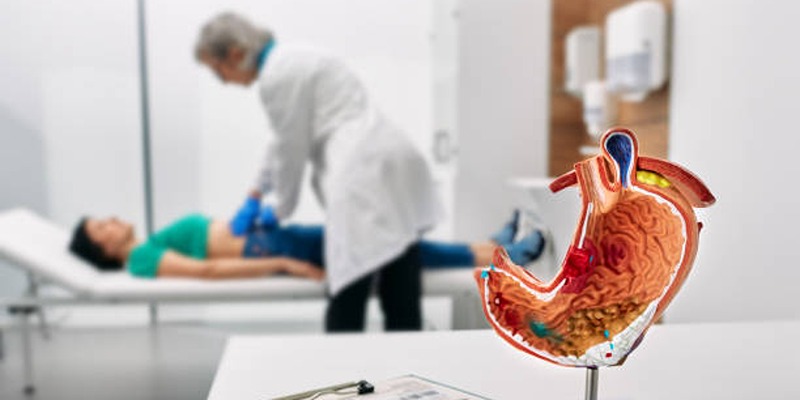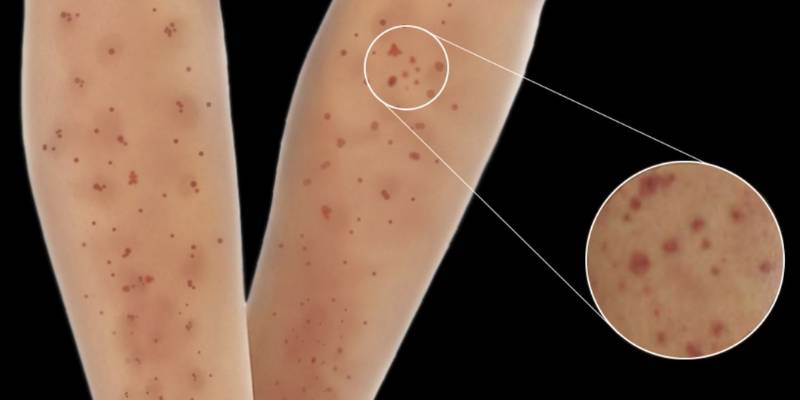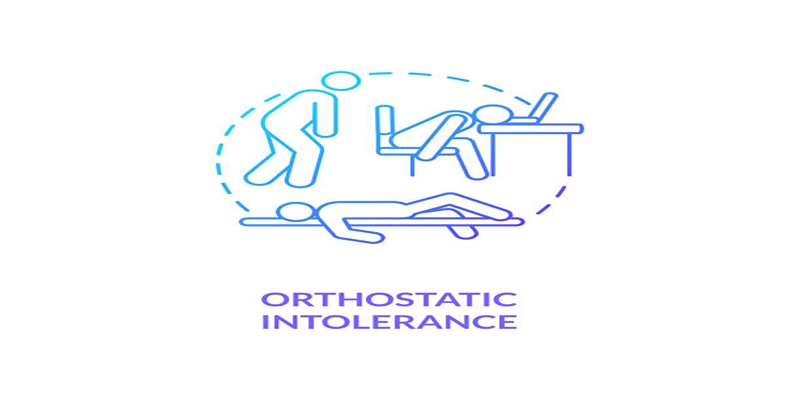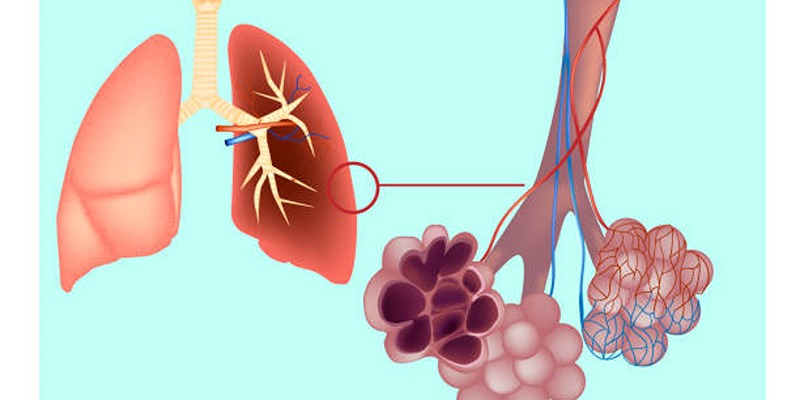Discover The Top 10 Causes Of Polydipsia Syndrome
Polydipsia syndrome is a condition marked by excessive thirst, causing individuals to drink unusually high amounts of fluids. Although the sensation of thirst is a natural and essential response to dehydration, polydipsia is a symptom of various underlying conditions that can significantly impact a person's health. These causes range from metabolic and endocrine disorders to psychological factors.
This article will explore the top 10 causes of Polydipsia Syndrome, helping you understand the different triggers and symptoms and how they can affect overall health.
Top 10 Causes of Polydipsia Syndrome are as follows:
Diabetes Mellitus:
Diabetes mellitus is one of the most common causes of polydipsia. In Type 1 and Type 2 diabetes, elevated blood glucose levels overwhelm the kidneys, which work overtime to remove excess glucose from the bloodstream. This process leads to dehydration as fluid is drawn out of the body to flush out the excess sugar. Dehydration triggers excessive thirst, leading to the sensation of needing to drink large amounts of water.
Impact on the Body:
- High blood sugar leads to frequent urination and fluid loss.
- The body craves fluids to counterbalance dehydration.

Diabetes Insipidus:
Unlike diabetes mellitus, diabetes insipidus is caused by a hormonal imbalance. This condition occurs when the body doesn't produce enough of the antidiuretic hormone (ADH) or the kidneys become resistant. ADH helps regulate water balance by controlling urine production, and when it is deficient or ineffective, excessive urine output and intense thirst occur.
Impact on the Body:
- Causes frequent urination, leading to dehydration.
- Triggering excessive thirst as the body tries to replace lost fluids.
Kidney Disease:
Chronic kidney disease (CKD) or acute kidney failure can lead to polydipsia as the kidneys lose their ability to filter out waste properly. This dysfunction results in an imbalance in water and electrolyte levels, causing dehydration and increased thirst. The kidneys' inability to maintain proper fluid balance can significantly disrupt hydration.
Impact on the Body:
- Impaired kidney function results in dehydration.
- The body compensates by increasing thirst to restore fluid balance.
Hypercalcemia (High Calcium Levels):
Hypercalcemia refers to abnormally high levels of calcium in the blood. This condition can lead to dehydration, which then triggers excessive thirst. High calcium levels may impair kidney function, preventing the kidneys from concentrating urine and leading to increased urination and the sensation of thirst.
Impact on the Body:
- Interferes with kidney function and water retention.
- Causes dehydration, prompting excessive thirst.
Hyperthyroidism:
Hyperthyroidism, a condition where the thyroid gland is overactive and produces excessive thyroid hormones, increases the body's metabolism and accelerates fluid loss. As the body works harder, dehydration occurs, causing the brain to signal increased fluid intake to rehydrate.
Impact on the Body:
- Elevated metabolism increases fluid loss through sweat and urine.
- The body signals the need for more water to restore hydration.

Psychogenic Polydipsia:
Psychogenic polydipsia is driven by psychological factors, where an individual drinks excessive amounts of water due to compulsive behavior or psychological disorders. Conditions such as schizophrenia or obsessive-compulsive disorder (OCD) may cause some individuals to feel the urge to drink water far beyond what the body needs, even if they are not physically dehydrated.
Impact on the Body:
- No physical dehydration is involved, but a psychological compulsion drives excessive drinking.
- Potential risk of water intoxication due to excessive fluid consumption.
Medications:
Certain medications can lead to medication-induced polydipsia. Diuretics, commonly prescribed for high blood pressure or heart conditions, increase urine output and can lead to dehydration. Other medications that affect electrolyte balance, such as lithium or certain antipsychotics, may also cause excessive thirst.
Impact on the Body:
- Diuretics and other medications increase fluid loss.
- The body compensates by signaling increased thirst to restore fluid balance.
Impact on the Body:
- The body's increased demands for hydration lead to a feeling of excessive thirst.
Adrenal Disorders (Addison's Disease):
Addison's disease, a condition caused by insufficient production of cortisol and aldosterone by the adrenal glands, can result in dehydration, low blood pressure, and excessive thirst. The sodium and water retention imbalance exacerbates the thirst response, leading to polydipsia.
Impact on the Body:
- Lack of aldosterone leads to electrolyte imbalances and dehydration.
- The body compensates by triggering excessive thirst.
Cystic Fibrosis:
Cystic fibrosis is a genetic disorder that affects the lungs, digestive system, and sweat glands. It can also affect electrolyte balance and hydration. The condition leads to excessive sweating, which causes the body to lose salt and water. People with cystic fibrosis may drink large amounts of water to replenish fluids lost through sweat.
Impact on the Body:
- Increased sweating leads to fluid loss and electrolyte imbalances.
- Dehydration triggers the sensation of thirst to compensate for fluid depletion.
Treatment of Polydipsia Syndrome:
Treatment for polydipsia syndrome varies depending on its underlying cause. Standard treatment options may include:
- Diabetes Management: Insulin therapy or oral medications help regulate blood sugar levels, which can alleviate excessive thirst caused by diabetes mellitus.
- Diabetes Insipidus Treatment: Hormone replacement therapy can help manage the deficiency in ADH, reducing excessive thirst.
- Kidney Disease Management: Medication, dietary changes, and, in severe cases, dialysis may help support kidney function and prevent fluid imbalance.
- Medication Adjustments: If medications are causing excessive thirst, doctors may adjust the dosage or prescribe alternatives.
- Psychological Treatment: Therapy may be necessary to address psychological factors contributing to psychogenic polydipsia.
Conclusion
Polydipsia syndrome can have many causes, ranging from chronic conditions like diabetes and kidney disease to psychological and hormonal imbalances. Identifying the underlying cause is crucial for effective treatment, as the approach to managing excessive thirst will differ based on the root condition. If you or someone you know is experiencing excessive thirst, it is essential to consult a healthcare professional for a thorough evaluation and appropriate management.
By addressing the underlying causes, people with polydipsia syndrome can effectively manage their symptoms and lead healthier lives. Early diagnosis and intervention can prevent further complications and improve overall well-being.












